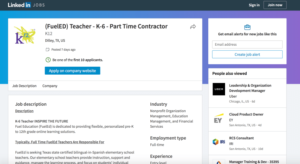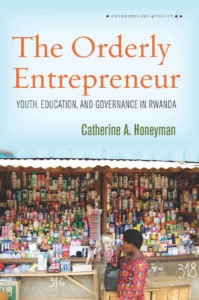Education, Gender and sexual health
Today we explore the schooling received by children affected by the Trump administration’s immigration policy of family separation.
My guest is Julian Vasquez Heilig, a professor of educational leadership and policy studies at California State University Sacramento. Julian writes a blog entitled “Cloaking Inequity”. In a recent post, he reported on a Texas-based detention center forcing children to use an online, for-profit charter school.
Citation: Heilig, Julian Vasquez, interview with Will Brehm, FreshEd, 125, podcast audio, September 10, 2018. https://www.freshedpodcast.com/heilig/
Transcript, translation, and resources:
Trump, detained children, and online charter schools
Today we talk about war and children in Japan. My guest is Sabine Frühstück, a Professor of Modern Japanese Cultural Studies at the University of California, Santa Barbara, where she also directs the East Asia Center.
She has published a new book called Playing War: Children and the Paradoxes of Modern Militarism in Japan. It is a cultural history of the naturalized connections between childhood and militarism.
In the book, Sabine analyzes the rules and regularities of war play, from the hills and along the rivers of 19th century rural Japan to the killing fields of 21st century cyberspace. It is a timely book that addresses the red-hot debates in Japan over its imperial past, its imposed pacifism, and its creeping militarization today.
Citation: Frühstück, Sabine, interview with Will Brehm, FreshEd, 86, podcast audio, September 11, 2017. https://www.freshedpodcast.com/fruhstuck/
Transcript, translation, and resources:
Playing War in Japan
Rwanda is perhaps most well-known for the genocide it experienced in the 1990s. In its post-conflict development, the country has had to balance colonial legacies, state centralizing tendencies, and the zeitgeist of neoliberalism. This has made for a careful balancing — one that has left the government regulating the society and economy while simultaneously reducing its responsibility to citizens.
In education, this balancing act manifests in the government’s three aims: credentials, controls, and creativity. The education system is based on credentials awarded through examinations, a colonial hangover, and controls students as part of the state’s centralization efforts; yet, somehow, the system promotes creativity so students can pursue a learner-centered education tailored to their own needs, preparing them for the 21st century labor market of precarious work.
My guest today, Catherine Honeyman, has a new book that explores Rwanda’s opportunities, challenges, and paradoxes in post-conflict development through the policy of mandatory entrepreneurship education, which is believed to be the country’s beacon for economic growth. Catherine Honeyman is a visiting scholar at the Duke Center for International Development and Managing Director of Ishya Consulting. Her new book, The Orderly Entrepreneur, takes us inside both policy making circles and classrooms to understand part of Rwanda’s social transformation. The Orderly Entrepreneur received an honorable mention from the Globalization and Education SIG’s 2016 Book Award.
Citation: Honeyman, Catherine, A., interview with Will Brehm, FreshEd, 64, podcast audio, March 13, 2017. https://www.freshedpodcast.com/catherinehoneyman/
Transcript, translation, and resources:
Entrepreneurship Education in Rwanda
Youth violence and the neocolonial system of education in Trinidad
On home schooling and anarchy
Textbooks in Latvia before and after the Soviet Union
Jane Kenway is an emeritus professor at Monash University in Melbourne, Australia. For the past several years, Professor Kenway has led a team of scholars and students from around the world on a multi-sited global ethnography of elite schools in 12 countries.
The study explores the global forces, connections and imaginations on elite schools, and hopes to enhance our understanding of how many national and transnational leaders are formed through their education.
The project has resulted in many publications, some of which you can find here. Will Brehm spoke with Professor Kenway in January on one of her recent pieces about how she and her team conducted this research, comparing more “traditional” forms of ethnography with her use of “global multi-sited ethnography.”
Citation: Kenway, Jane, interview with Will Brehm, FreshEd, 13, podcast audio, July 21, 2016. https://www.freshedpodcast.com/janekenway/
Transcript, Translation, and Resources:
Multi-sited global ethnography
Gender and equity in education
